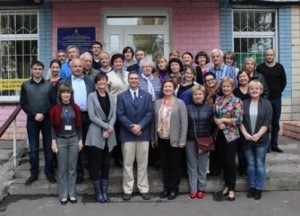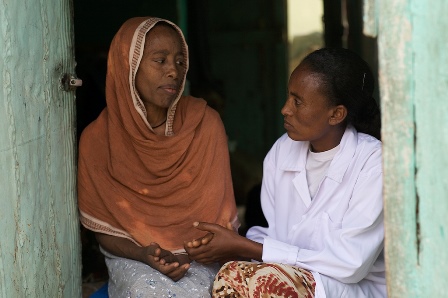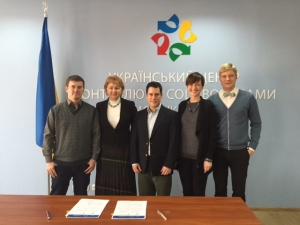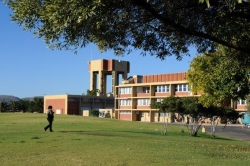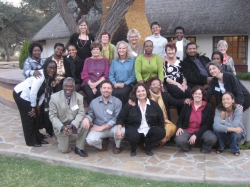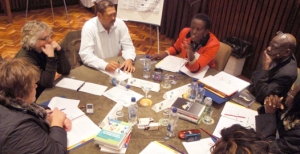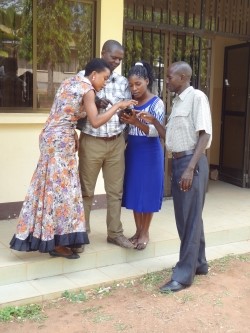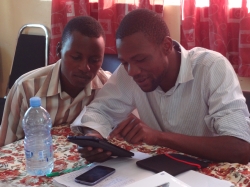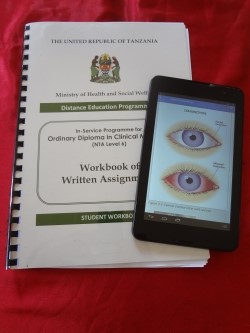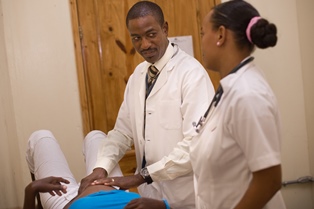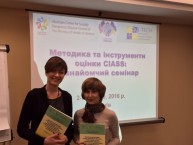
On January 26, the Ministry of Health (MOH) of Ukraine formally adopted the national guidelines on Clinical Assessment for Systems Strengthening (ClASS) and approved ClASS as a formally recommended national qualitative methodology/tool. The ClASS Guidelines were developed by a team of 10 experts from the International Training & Education Center for Health (I-TECH) and the Ukrainian Center for Socially Dangerous Diseases of the MOH of Ukraine (UCDC).
The ClASS methodology in Ukraine offers four key modules/tools: Clinical, VCT, Administrative, and Financial. Two additional modules that will help assessing HIV/TB integrated services and HIV labs are in the process of development with input from the national and international experts. They are expected to be formally approved later this year.
“This is a significant accomplishment and the product of a very small team who put tremendous efforts, time, and energy to develop national guidelines in the course of just few months,” says Anna Shapoval, Country Representative for I-TECH Ukraine. “We are extremely proud and humbled by the fact that our joint efforts of promoting ClASS in Ukraine in the past two years are sustained in the form of this publication.”
On February 2-3, I-TECH and UCDC conducted the national dissemination workshop in Kyiv. ClASS Guidelines were presented to the group of the national ClASS reviewers, representatives of the eight Oblast AIDS Centers (OACs) from the regions that participated in the assessment to date, as well as OACs from the three new regions interested in applying ClASS. Along with local partners, I-TECH and UCDC discussed potential benefits that participation in ClASS could offer, just some of which include:
- A positive platform for mentorship and sharing experience with the national ClASS reviewers, most of whom represent various health facilities and work in various regions of Ukraine;
- Sound, evidence-based assessment findings, which may be successfully used for development of the strategic and working action plans and for attracting additional financing from budget and off-budget sources, donors including additional technical assistance; and
- Preparation for accreditation and compulsory certification.
The future plans in regard to ClASS promotion in Ukraine include assessments of additional regions, development of at least two additional modules, training of the second group of the national ClASS reviewers, and applying ClASS toward at least two OAC as part of their preparation for the accreditation or mandatory certification.
Following the workshop, over 100 copies of the publication were immediately sent out to the U.S. Centers for Disease Control and Prevention (CDC) office in Ukraine, other international agencies, the MOH, all Health Departments of all Oblast State Administrations, all Oblast AIDS centers, scientific medical libraries, libraries of the Ukrainian medical universities, and continuous medical education academies.
“These guidelines open new opportunities for applying ClASS methodology and tools in Ukraine in different contexts and, most importantly, upon request from specific health care facilities or regions,” says Ms. Shapoval. “This differentiates ClASS from other top-down evaluations or approaches.
“The level of enthusiasm about ClASS among our national and local partners is inspiring, and with the additional modules on labs and HIV/TB co-infection being finalized and plans to train and certify the new group of national reviewers, we hope I-TECH will continue expanding its work around ClASS in Ukraine in the coming years.”

